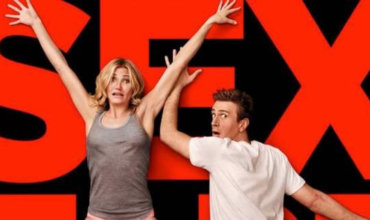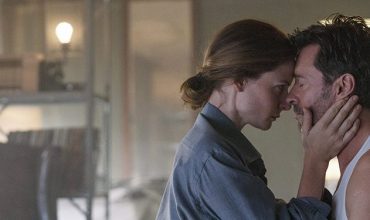Let’s be honest; you have to be pretty damn bold to take on The Hobbit for a Boxing Day opening, but director Tom Hooper and producer Cameron Mackintosh have proven their daring through more than just the selection of release date.
Originating from the 1862 novel of the same name, which was later adapted to a musical, Les Misérables examines the nature of law and grace. The epic tale follows ex-convict Jean Valjean (Hugh Jackman) who breaks his parole and embarks on a new life under God. He is, however, pursued by the ever-righteous Inspector Javert (Russell Crowe) who is determined to ensure justice is served.
Set against the historical background of impoverished France, it spans the years 1815 to 1832, culminating in the Paris Uprising or ‘June Rebellion’.
Having seen the musical countless times around the world (and having performed in a production myself) it is fair to say I stand as a ‘Les Mis’ fan. Knowing the music well, and being extremely aware of the disappointing previous film adaptations, I was excited yet apprehensive to experience the first movie to take primary inspiration from the musical rather than the novel.
The result: An epic spectacle worthy of Claude-Michel Schonberg’s equally epic musical score.
But whoa there! You would be mistaken to assume this film is a direct translation of stage show to screen. Infact, many die-hard musical fans will no doubt curse the heavens at how significantly the music has been rearranged, with the order of songs shuffled, entire segments cut, new songs added, lyrics altered, time measures changed and the incorporation of spoken dialogue (the musical is a pure ‘sing-through).
Sure I wanted to cry when some of my favourite (yet admittedly insignificant) lines were skipped over or changed, but ultimately this is done to serve the medium of film.
The finished product is a solid hybrid of stage and screen conventions, blended with the bonus of deeper character and plot development provided by added content from the book. My advice to the die-hards: Cool your boots! Be willing to be flexible and await the wonder that will befall you!
Now for the fun stuff: The cast. The production team had pick of the bunch here and they did not waste their casting power.
Every cast member earned their place (Russell haters bear with me for a moment!) with the lead actors subjected to repeated auditions for several months to ensure their suitability (Amanda Seyfried, a.k.a Cosette, auditioned persistently for five months before finally deemed worthy.)
Rather than the traditional method of the cast pre-recording their songs only to mime on set, all the singing was done live with the actors fed, through an earpiece, a link to a pianist who accompanied them off camera. This was a great move by Hooper and Mackintosh, allowing for spontaneity in performance. The rawness of each song adds to the film’s dynamic.
Hugh Jackman is a solid as ever performing with utter conviction the role he was arguably born to play (come on; he was not born to play Wolverine!). It’s no glamour role this one, with Hugh donning scars and gingivitis galore. He also shed a tonne of weight and grew a beard worthy of Gandalf’s envy for the first scenes to shoot, only to rapidly put the weight back on (and shave!) for the following scenes.
While his vibrato gets a little overbearing towards the end of the film, it’s nothing to get too worked up about.
Anne Hathaway as Fantine is a stand out with a pure vocal tone and majorly emotional delivery (Jackman himself campaigned to get her the role – nice one Hugh!).
Now for the part that will have Les Mis traditionalists sending me bad voodoo over the airwaves…
Let’s talk about Russell Crowe as Javert.
If you’ve done any research you’ll know he is dividing critics. Admittedly, upon his casting, I recoiled in disgust, and his vocal snippets in the trailer did nothing to ease my concerns. With a more modern, and undeniably softer, vocal quality he is certainly an unconventional choice for this character. However, upon viewing his performance in the context of the film, I understand and support the casting decision.
Remember we are talking about an audition process that took months. Stars werelining up to be in this flick – Crowe was chosen for a reason people, try to look past your expectations and consider what it might be.
Sure he doesn’t have a mega theatrical voice to match his fellow performers, and yes the conventional choice for Javert would be the choose an imposing presence – one whose voice is capable of filling the whole stage, and that matches Jean Valjean. However, we are not dealing with a big empty stage here; we are dealing with a single frame of film. Having vocalists that can ‘match eachother’ becomes less important, while the significance of contrast becomes apparent.
When shut in a dark, compact cinema with huge singing faces looming over you for hours, there is no need for everyone to have booming voices that reverberate off the walls: You need some light and shade. This I deem to be Russell’s purpose.
Russell performs Javert as the reserved ‘strong and silent’ type, with a pleasantly warm, melodic voice that slides over each bar. While I defend him to an extent, he could have done with some more musical direction, as he sometimes lack rhythmic variety, but he has an appealing tone to his voice and a lovely lower register. Sure ‘appealing’ and ‘lovely’ is far from impressive, but I consider his gentler approach as necessary to offset the many ‘bellowers’ in the cast. Once I had settled into this different portrayal of Javert, I found a melodic change welcome in a film setting (insert abuse here!)
In fact, it seems prevention of giving audience members a headache was first and foremost in the director’s mind, with many of the ‘big notes’ you usually find projected to the heavens in the stage show toned down in duration and volume. Again, the thespian in me felt a little disappointed, but I realise in a film designed to appeal to a wide audience not every song can be a showpiece – they must direct the story as much as impress.
The scope of the film is awesomely epic with fantastic locations/sets. The makeup and costuming is gritty, dirty and depressing – no sugar coating here! This is poverty as it would have been in reality. Sensational stuff!
The cinematography is often brilliant, yet the stagnant way in which solos are shot is a little distracting. A five minute stationary close up of Hugh wailing tunefully at us is not really necessary (yes, he is emotional…we get it!)
In consideration for the non-musical folk in the audience, an attempt at maintaining pace is made by removing most of the pauses and interludes between lines. While understanding why this decision was made, it comes across as a little rushed, with some of the effect reduced by the hurried delivery. They would have been better off cutting the totally pointless and random extra song written just for the movie, and keeping the pauses.
Aside from those few gripes, the film is an excellent representation of a well-loved story, successfully combining stage, book and screen to deliver an entertaining and emotional experience (there were men crying their eyes out). Les Mis is a welcome addition to the holiday blockbuster line up.
I rate it 8 stars.


